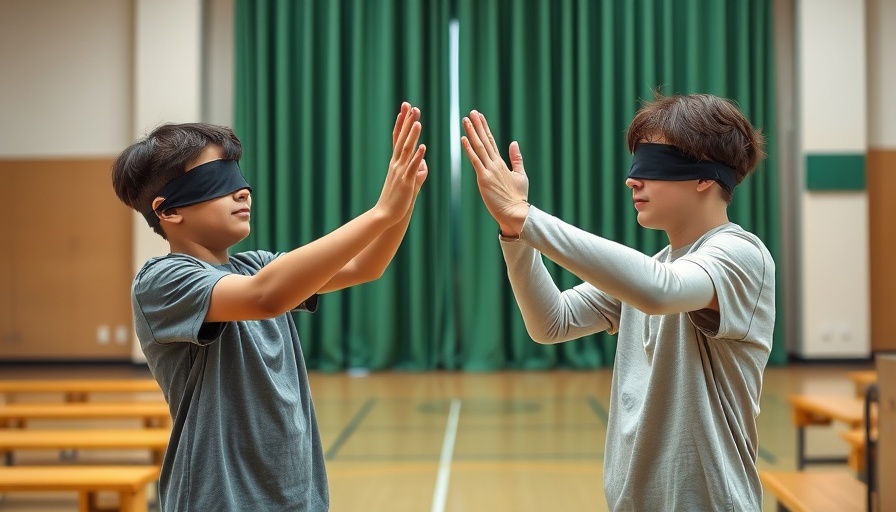
Building Trust and Communication Through Fun
In a heartwarming initiative aimed at fostering interpersonal skills among 150 Year 7 pupils, student teachers from Brighton's Physical Education program organized a lively team-building event at the university's new sports facilities in Falmer. This event was a colorful showcase of ice-breaking games, trust activities, and problem-solving challenges that not only helped students bond but also set a positive tone for their secondary education journey.
Experiential Learning: The Foundation for Growth
With a focus on a pupil-centered teaching approach, the activities were designed around practical knowledge and the values of respecting diverse identities. Dr. Gary Stidder, the PGCE and School Connect Route Leader, emphasizes the importance of communication skills in this age group, stating, “As many pupils come from different primary schools, these activities promote verbal and non-verbal communication and help break down social barriers.” This experiential learning technique encourages students to engage actively and develop their leadership skills.
The Social Benefits of Team Building
Similar to the classic team-building games highlighted in educational circles, such as the 'Human Knot' and 'Egg Drop Challenge,' the activities at Brighton University aim to instill essential life skills among participants. Activities that involve teamwork, trust, and cooperation are particularly beneficial as they pave the way for friendships and support systems essential during middle school years. These exercises not only allow students to step outside their comfort zones but also foster a sense of belonging and community.
Future Trends in Youth Engagement: Why This Matters
Analyzing the importance of such initiatives, it's clear that introducing team-building activities early creates a more cohesive and understanding school environment. As we move towards more inclusive educational practices, the integration of social emotional learning (SEL) serves as a critical component in shaping well-rounded individuals. Schools that prioritize SEL through such engaging approaches can significantly enhance student interactions and conflict resolution capabilities, promoting healthier working relationships that carry beyond the classroom.
Students Boosting Mental Well-Being Through Interaction
Research indicates that social interactions and collaborative activities are vital for mental health, especially among adolescents. Engaging with peers in fun and structured environments like this event can lead to increased confidence, stress relief, and improved academic performance. By creating opportunities for these connections, educators are directly contributing to the overall wellness of their students.
Encouraging Diverse Perspectives
One of the notable aspects of team-building events is their inherent ability to bring together students from various backgrounds, enabling them to appreciate different perspectives. This is crucial in nurturing future leaders who are equipped to handle diversity in any setting. The values of empathy and understanding gleaned from these activities extend far beyond school and into the community, preparing these young individuals for real-world challenges.
A Call to Action for Community Engagement
As we reflect on the success of this team-building event, it invites further community involvement. Creating safe spaces for students to connect, share, and grow is essential for their development. There are numerous opportunities for parents, educators, and local organizations to contribute to a rich environment where social skills are cultivated, nurturing not just capable students but responsible citizens.
Participate in your local educational initiatives and support programs like these that actively transform the lives of young learners while building a stronger community fabric.
 Add Row
Add Row  Add
Add 


Write A Comment